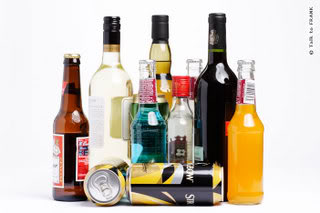A woman's risk of breast cancer usually increases when a family history of breast cancer. However, this risk can be reduced with lifestyle changes and behavior, particularly in terms of alcohol consumption.
A new study from Washington University School of Medicine in St. Louis shows, teenage girls with a family history of breast cancer have a higher risk of suffering from cancers such as increased consumption of alcohol.
Researchers claim, this is the first finding that the relationship between alcohol consumption in adolescents with risk of breast cancer. The reason for this mostly just research linking alcohol to breast cancer risk in women age 50s, 40s, 60s and the risk of invasive breast cancer, instead of the initial risk that can lead to invasive breast cancer.
Previous research published in the Journal of the American Medical Association, in which Colditz also act as researchers discovered, there has been a moderate increase in breast cancer risk by consuming 3-6 glasses of alcohol per week per adult women, regardless of whether he has a family history of breast cancer .
In his research Colidtz also find interesting facts, which are not found to increase the risk of benign breast lesions in young women (with no history of breast cancer) related to alcohol consumption. However, they seem obvious risk with increasing body mass index in childhood, waist circumference in adolescence and height.
The findings indicate, there are differences in risk factors between women with a history of breast cancer and those who did not.
Height associated with breast cancer risk. And some data showing explosive growth led to a higher risk of developing cancer later in life. Obviously, it's not something we can control. But if we can understand what is going on hormones and processes in the body, and the role of physical activity and diet, we may be able to modify some of the accumulated risk of early breast cancer.
Read more...
A new study from Washington University School of Medicine in St. Louis shows, teenage girls with a family history of breast cancer have a higher risk of suffering from cancers such as increased consumption of alcohol.
Researchers claim, this is the first finding that the relationship between alcohol consumption in adolescents with risk of breast cancer. The reason for this mostly just research linking alcohol to breast cancer risk in women age 50s, 40s, 60s and the risk of invasive breast cancer, instead of the initial risk that can lead to invasive breast cancer.
Previous research published in the Journal of the American Medical Association, in which Colditz also act as researchers discovered, there has been a moderate increase in breast cancer risk by consuming 3-6 glasses of alcohol per week per adult women, regardless of whether he has a family history of breast cancer .
In his research Colidtz also find interesting facts, which are not found to increase the risk of benign breast lesions in young women (with no history of breast cancer) related to alcohol consumption. However, they seem obvious risk with increasing body mass index in childhood, waist circumference in adolescence and height.
The findings indicate, there are differences in risk factors between women with a history of breast cancer and those who did not.
Height associated with breast cancer risk. And some data showing explosive growth led to a higher risk of developing cancer later in life. Obviously, it's not something we can control. But if we can understand what is going on hormones and processes in the body, and the role of physical activity and diet, we may be able to modify some of the accumulated risk of early breast cancer.




